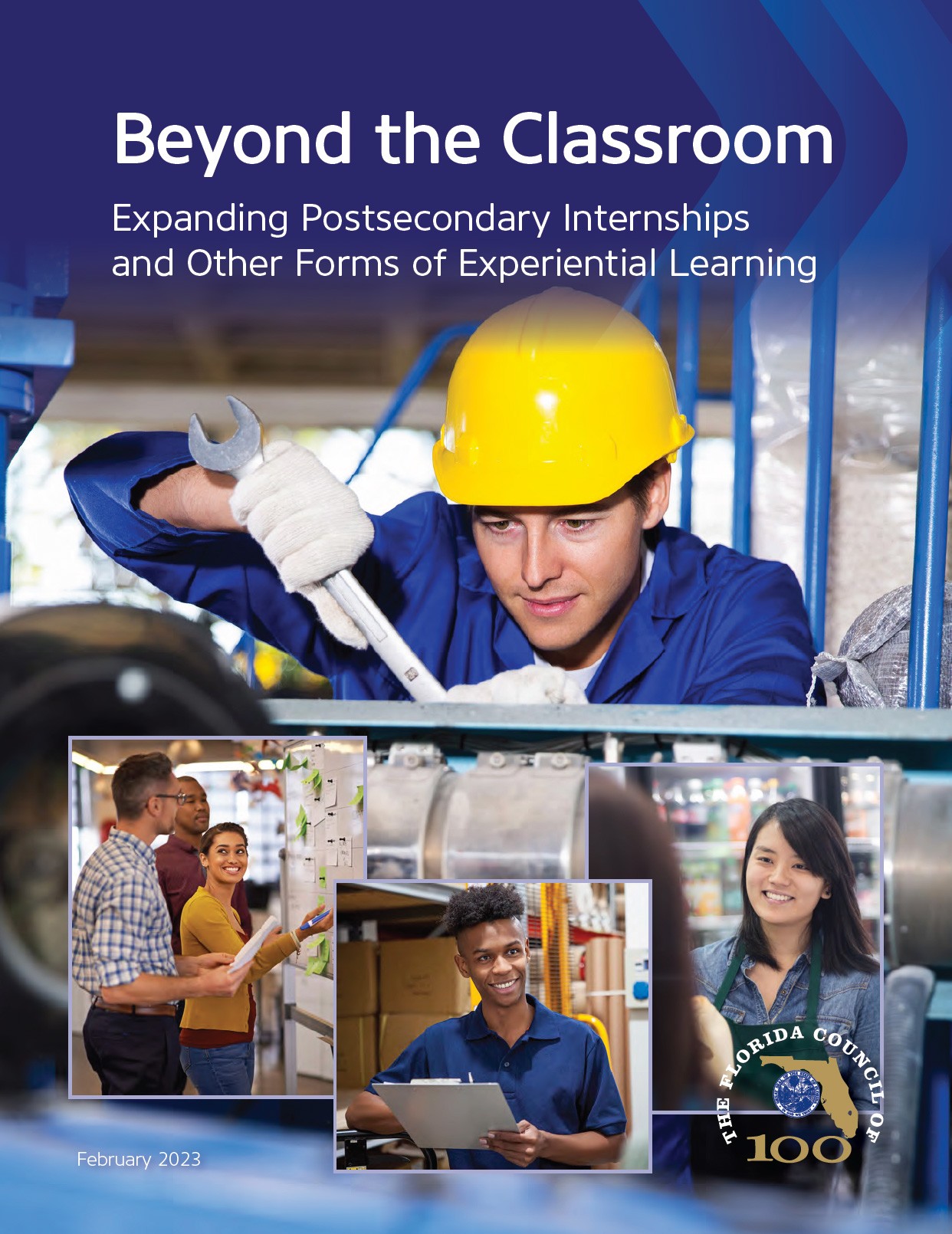Research
•
Talent
Beyond the Classroom: Expanding Postsecondary Internships and Other Forms of Experiential Learning
March 8, 2023
The Florida Council of 100 has a long history of working to ensure that Florida is educating and training a workforce that aligns with the needs of employers in the modern economy. While we have made good progress, a gap remains. According to a 2022 survey by the Florida Council of 100, 80% of employers have stated that today’s graduates are unable to fill their need for talent. This is further compounded by the fact that grades are compressed, and many students are graduating college with high grade point averages, making it difficult for employers to assess new graduates’ absolute and relative skill levels.
Additionally, more than one-third of the businesses stated that they spend additional time or money training or re-teaching new hires skills they should have already learned in school – a perspective more prevalent among businesses that have hired a Florida public university graduate in the past four years.
Importantly, experiential learning (e.g., internships) at state universities is a clear differentiator as employers assess talent. Increasing access to these programs and better preparing students to communicate this work to prospective employers will begin to erode the talent gap.
Experiential learning includes activities such as internships, teaching assistantships, formal research conducted outside of the classroom, volunteering, and study abroad. In Summer 2022, the Florida Council of 100 also conducted a scientific survey of Florida businesses relating to perceptions of the value of experiential learning, especially internships. Overall, 64% of respondents said that a prospective employee having had a college internship makes a significant or meaningful difference in the job candidate’s appeal and makes them more employable.
This report builds on the recent work of the State University System Board of Governors to expand internships at state universities. It includes 8 recommendations, which we suggest be implemented over a three-year period. Sample legislation for recommendations 2-8 can be found in Appendix B.


